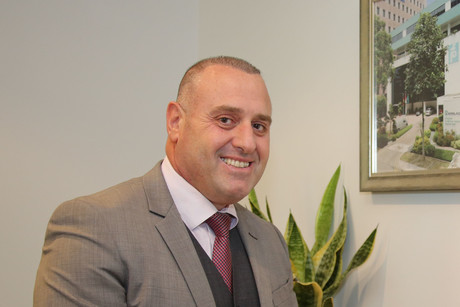CEO Insights: Paul Bruno

What do you see are the biggest challenges that will face your industry in 2017?
Due to the vast array of applications that our products are used for, we are fortunate to be active in a number of industries, including manufacturing, mining, oil and gas, warehousing and logistics, food and beverage, and materials handling. Within each of those industrial segments, we will always inherently face similar individual challenges that affect them. Some of our domestic success has revolved around an industry that is heavily investing in capital terms in both downstream and upstream activities. This investment of course is highly dependent on various conditions, such as prevailing and future oil and metals prices, the political will and landscape of many oil-producing nations, and the ever-increasing debate on renewable energy over fossil fuel, mixed in with a desire for becoming low-carbon economies.
The slashing of capital expenditures in such large sectors of the economy brings unemployment and lower real estate value, and plunges resource stock prices, along with the inevitable squeeze on current suppliers to offer more competitive pricing for already committed projects.
This, I know, is no different for any other supplier within our industry; however it’s that disruptive volatility that we must guard against and ensure that our own enterprises are optimised from a resource sense, and flexible enough to meet the demands of the customer as they arise — without increasing arbitrary cost.
How is the IoT impacting you and your clients?
The answer is simple. Daily, more and more, and the prevalence of change and demand is already gathering pace. It isn’t difficult to understand why this is the case: it’s simply a case of adapt, adopt and innovate, or be left behind. The Internet of Things or Industry 4.0 is bringing efficiency, accelerated automation and higher productivity — all leading to savings in cost.
The potential for our customers to be able to remotely monitor, reduce machine downtime, improve asset utilisation and improve overall productivity is great — and where the opportunity arises organisations such as ours must be at the ready to provide the next level of solution for such clients.
At Pepperl+Fuchs we are already providing solutions such as intelligent sensor technologies, networked field devices and new bridge technologies, new transmission technologies to drive autonomy and automation of factories and plants forward.
What can Australian industry offer that overseas suppliers cannot?
When I think of overseas suppliers, I can’t help but think of the term globalisation. Two of the things that globalisation cannot offer in the strictest sense are proximity and immediacy. In today’s ever-demanding marketplace, globalisation is at the forefront of offering a wide variety of choice, quality and price; however, many customers who conduct business in Australia still require the close proximity to strategic and critical suppliers that in many cases offer the immediacy of product or service. We must remember that we are still a great distance from many markets, despite the improvements in overseas delivery times and freight routes. Too often we look to overseas for our solution for our supply problems, yet here in Australia we have excellent manufacturers who offer products and services which are largely of superior quality to overseas suppliers, at prices which offer great value.
At Pepperl+Fuchs we offer our customers local design, engineering and manufacturing of high-quality Ex d products (explosion protection), customised to the client’s particular requirements, subject to some of the most stringent certification requirements to exacting quality standards. We are local and we are proud of our ability to be able to talk face to face with our customers to understand their requirements and deliver a solution that they are completely satisfied with. We are able to provide them real-time support with lead times superior to overseas suppliers.
How can industry support both very young and new workers and those at the end of their careers?
We have an ongoing dilemma as a nation — let alone as an industry — to be able to offer and support new opportunities for the very young and those people who are at the other end of their working lives.
It’s not a question that I can offer a solution for; however, as an employer and an influencer, I believe we need to put our collective minds together to better serve these groups of people for the benefit of an overall healthier economy and as a valuable resource to industry. It’s also not one that industry alone can solve and support. A collaboration between academia, industry and government is the only way we can commence to offer meaningful and sustainable opportunities for our younger people and our mature workers.
AI and data science will lead the next Industrial Revolution
Are we there already? Or is AI just another buzzword that will soon pass?
AMW2024 comes to Darling Harbour
AMW2024 is on at ICC Sydney, in Darling Harbour, 17–19 April 2024.
Tiny sensor sniffs out toxic ammonia gas
Exposure to high levels of ammonia can lead to chronic lung conditions and irreversible organ...














